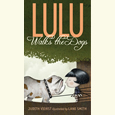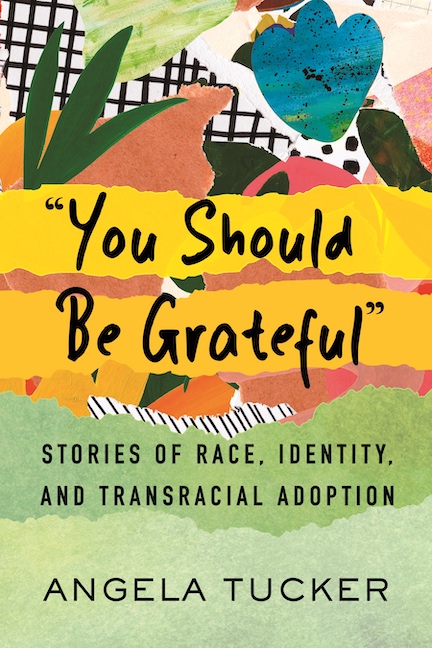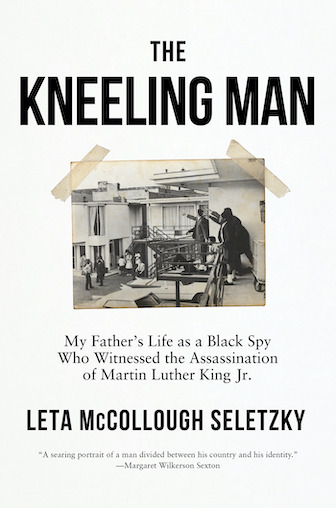Real-Life Applications
Scott Hylbert’s debut thriller is scary because its implications are so authentic.
There isn’t anyone under 35 who would be unable to relate to Elliott, the protagonist of Task Lyst, the debut thriller from Nashville writer Scott Hylbert. Elliott is a struggling Bay Area songwriter and musician who resorts to using a new online service app to take one-off jobs so that he can make his rent. (Think TaskRabbit gone omnivore, with the option to be paid anonymously in cash or in currencies like Bitcoin.)
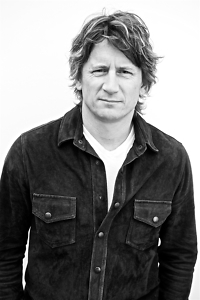 It seems benign enough at first, this notion of people posting simple chores like having their groceries picked up or their dogs walked so that they can save some time and help someone else earn a little money. But even as Elliott becomes increasingly dependent on the easy cash that comes from the app, he also grows more wary.
It seems benign enough at first, this notion of people posting simple chores like having their groceries picked up or their dogs walked so that they can save some time and help someone else earn a little money. But even as Elliott becomes increasingly dependent on the easy cash that comes from the app, he also grows more wary.
It takes a creepy assignment involving delivering packages while wearing a mime costume to finally convince Elliott that there’s some kind of dark underbelly to the platform. Meanwhile, a Silicon Valley venture capital firm targets Task Lyst for a possible infusion of cash, gambling on a huge payout later, once the app has scaled way up and multiplied its user base a thousandfold. From there, the plot spins into riveting intrigue involving money, drugs, and ruthless global politics.
The genius of Hylbert’s novel is that its narrative hews so shrewdly to the real and perceived dangers of the online gig economy that its dystopian implications aren’t at all difficult to imagine. In other words, it’s probably not the book to take to the beach if you’re wondering how your high school kid can suddenly afford that new Fender amp and a shiny, new-generation iWatch.
Scott Hylbert recently answered questions from Chapter 16 via email.
Chapter 16: Even in the age of Craigslist killers, illicit mail-order drugs, and cryptocurrencies like Bitcoin, you’ve managed to write a thriller about a Silicon Valley service-for-hire startup that’s chilling in its implications. What was your inspiration for this novel?
Scott Hylbert: Initially, Task Lyst was part desperate business plan, part jaded musician memoir, and part dystopian fiction. I was 15-plus years into my working life, spinning my wheels in an industry that was facing a challenging future. I was questioning where I was, where I’d been, and what was ahead, particularly with two kids inching towards tuition age. I wanted to take more control of my personal narrative.
A friend tipped me off to a back door into the Vanderbilt Graduate School. Over the course of one late summer month I applied, interviewed, collected transcripts and letters of recommendation, and figured out how to scrape together tuition for a master’s in liberal arts and sciences (with a focus on creative writing) (plug: Vanderbilt MLAS). The classes were at night, so I kept my day job. It was a hedge towards a teaching role or improving my creative prospects.
Meanwhile, I was looking for better opportunities in media and business development, dreaming up my pivot towards more lucrative work. I pitched an idea to the Nashville Entrepreneur Center and came away energized by the enthusiasm and support I received.
So now It was a dead heat between grad school classes in creative writing and formulating the billion-dollar business idea. I found the idea for Task Lyst easier to develop with prose than a bunch of spreadsheets and pro forma. At this point, a side-hustle “task” marketplace a la Uber, Lyft, Airbnb was a new concept. But I soon became more interested in its literary potential, as a mirror for what I saw occurring around me with friends in and under the big tech takeover. I started channeling personal experiences into the intrigue of a marketplace that encourages participants to make poor decisions.
There was a class I took called “The Nature of Evil” that informed the question: How far would you go over the edge?
Through the five years of writing Task Lyst, the plot was shaped by real-life developments from both personal experience and in the news: the emergence of cryptocurrency, assassinations by poison, rampant data manipulation. Dark web meets deep state.
Chapter 16: As someone who used to toil in print media as an advertising executive at the Nashville Scene, you probably have some mixed feelings about the ways in which we all communicate, consume media, etc. Your songwriter character, Elliott, certainly has some justifiably choice words about how artists are impacted by streaming. Is this book your warning to the world that we’re headed for sure disaster, or have you embraced all this as progress?
Hylbert: Elliott struggles with the new landscape and pines for the old filters that were in place (when the author was his age), a time when some degree of mystery remained between artist and audience, and gatekeepers at traditional media ruled with impunity (alt-weekly music editors, radio programmers, independent concert promoters, ’zines).
But he also hopes to adapt to the new rules. Personally, and maybe for Elliott too, the old establishment didn’t validate my music, so I didn’t lose much under the new regime — new boss, same boss. But for some, songwriters in particular, it’s a total disaster. The cultural significance of popular music doesn’t seem to be what it was 50 years ago.
Chapter 16: It’s always refreshing when someone in their, uh, late youth manages to publish a first novel. You’ve had quite a ride. You and I worked together back in the day at the Scene, and at one point you were a rocker and before that a college soccer star. Now you run a creative event space with your wife. How does all this fit together? And how old are you anyway?
Hylbert: Fifty years young. I held a romantic notion of my role selling concert advertising as supporting the important work of talented journalists and editors keeping a watchful eye on the mainstream media. You guys were the cool ones prowling City Hall while we picked up $90 checks from House of Hunan. Over lunch or drinks we ad reps would share stories of hard-working mom-and-pop clients and our subversive tactics for reaching the decision-makers. We pledged to collaborate on the screenplay of the “fish-wrap chronicles,” told from a cherub-faced Willy Loman perspective. So the seed was planted early.
It took 15 years for me to enroll in night classes in creative writing to have any chance at all of telling the tale. You can’t just pick up the pencil and expect a compelling story to start flowing. There’s that thing called craft.
The creative venue, White Avenue Studio, was fortuitous timing. Nashville’s booming economy was ripe for another “banquet hall” and photography studio. I still sell space, actual instead of virtual. Studio shoots and private events are my new full pages and banner ads. Not sure if I can afford to steal away over an extended lunch to write!
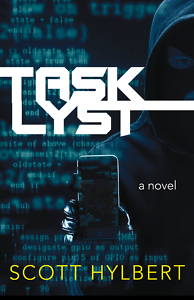 Chapter 16: Aspiring writers always want to hear from published novelists about how they managed to finance their writing, or at least how they found the time while still earning a living to get it done at all. How did you do it?
Chapter 16: Aspiring writers always want to hear from published novelists about how they managed to finance their writing, or at least how they found the time while still earning a living to get it done at all. How did you do it?
Hylbert: Finding the time and place to write is half the battle. I wrote the first chapter on a flight from San Francisco to Nashville and woke up the next day, a Monday, with a compulsion to continue. I checked in at work in the morning and then spent my lunch hour(s) at Vanderbilt Central Library in the reference reading room writing on an iPad. It became a habit to sneak away during the mid-part of my workday, writing in feverish spurts, before the demands of my advertising role would finally pull me back to reality. This probably informed my short-chapter approach to the book. The three alternating narratives allowed for some to be short and others to be more drawn out as I had to keep a consistent overall timeline. And that’s the trade-off I negotiated with myself: Keep the day job but make it accommodate the creative pursuit. It forced me to work more efficiently with added focus. My water cooler, break room socializing suffered.
Chapter 16: Any reader of your book will learn quickly who your musical heroes are. Who are your mystery heroes and influences?
Hylbert: I was surprised when my publisher, Turner, announced they would market Task Lyst as a techno-thriller. Apparently, I was the only one who thought it was literary fiction. Ha! For my capstone project I had been reading Gilded Age writers: Jack London (Valley of the Moon, Martin Eden), Frank Norris (The Octopus), Mark Twain (Mysterious Stranger), Willa Cather (My Antonia), Edith Wharton (The House of Mirth), Oscar Wilde (The Picture of Dorian Gray), Robert Louis Stevenson (The Strange Case of Dr. Jekyll and Mr. Hyde). There’s some mystery mixed in there, and some of it certainly influenced my approach to Task Lyst.
Also, John Fowles (The Magus), Toni Morrison (The Bluest Eye), Kurt Vonnegut (Sirens of Titan), Sylvia Plath (The Bell Jar) and short stories by James Baldwin (“Sonny’s Blues”) and John Cheever (“The Swimmer”) from the mid-century time period. Growing up I liked Tom Wolfe’s effectiveness in delineating decades (Pump House Gang, Electric Kool-Aid Acid Test, Bonfire of the Vanities).
Stieg Larsson (the Dragon Tattoo series) got me through a few beach vacations once the kids came along. Recently I’ve caught up on page-turners from Jennifer Egan (A Visit from the Goon Squad) and Dave Eggers (The Circle; Your Fathers, Where Are They? And the Prophets, Do They Live Forever?)
Finally, I have to give shout-outs to two writers who have inspired me: Joe Henry (Lime Creek) for his disciplined devotion to craft and James Frey (A Million Little Pieces, Katerina) for fearlessness. Friends, both (thanks for the blurbs!).
Chapter 16: Readers can find you at the Southern Festival of Books in October. What writer are you most looking forward to hearing?
Hylbert: I have to say it’s humbling to be invited to the Southern Festival of Books. I’ve seen some amazing readings and Q&As there in the past, and I’m really looking forward to participating. Michael Croley teaches at my undergrad alma mater, Denison University, and his short story collection is getting great reviews. Kate Daniels, one of my Vanderbilt instructors, is a terrific poet. I’m glad my friend Doug Hoekstra will be there. He’s a poet and prose writer and comes from a music background like me. I definitely don’t want to miss Ann Patchett, Margaret Renkl, and Mary Laura Philpott. I will definitely dig into the list and find more to add before October.

Liz Garrigan is the former editor of the Nashville Scene and Washington City Paper. She lives in Bangkok, Thailand.

